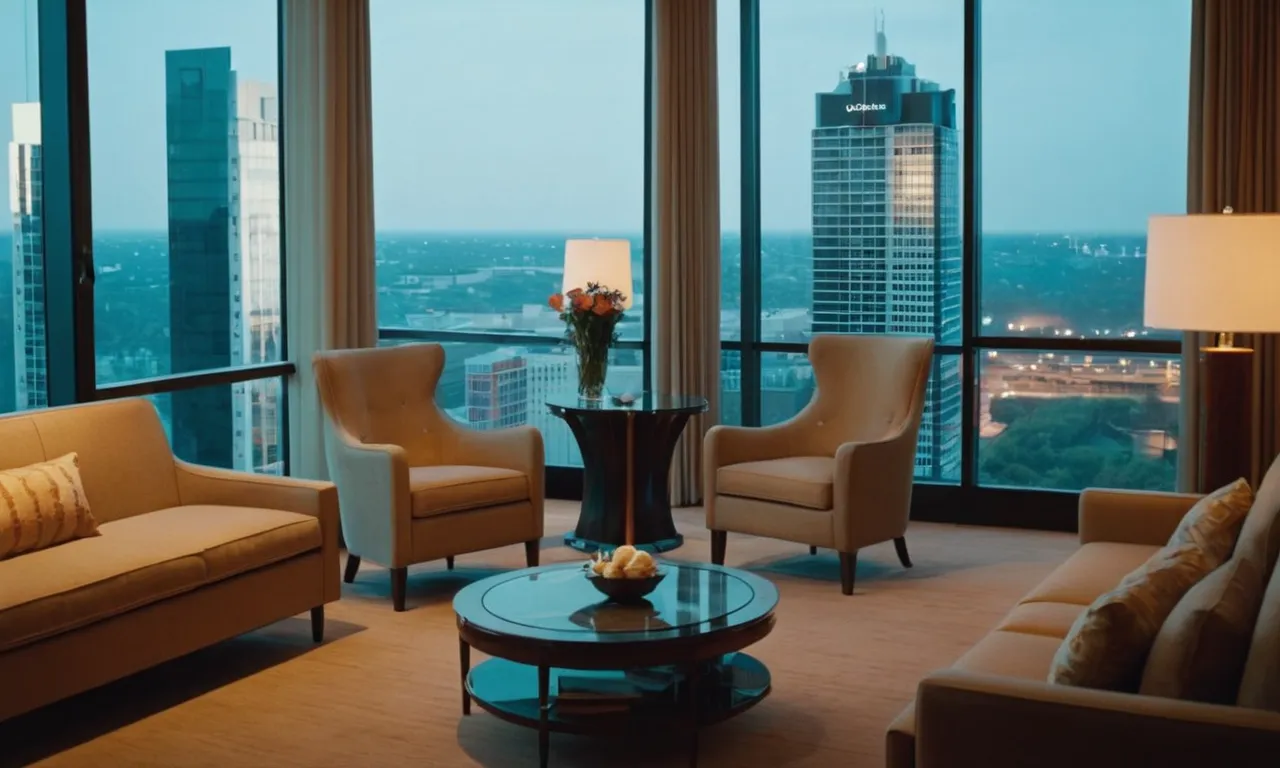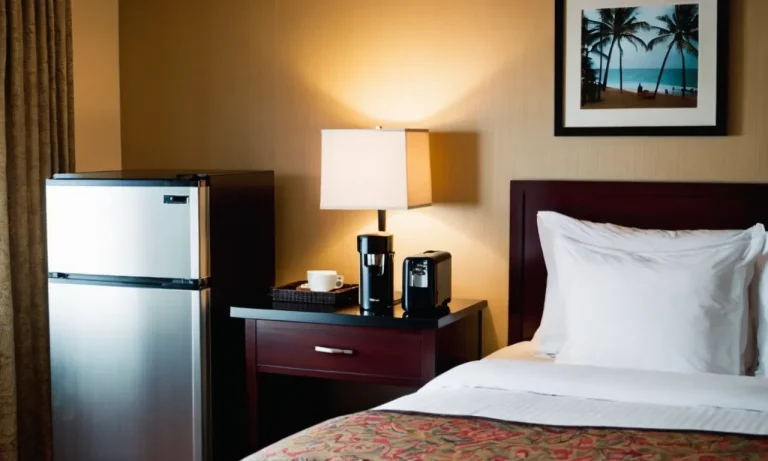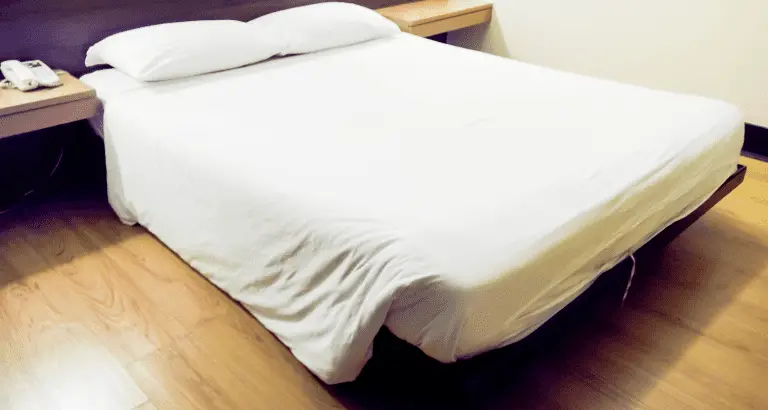How Much Does It Cost To Reserve A Block Of Hotel Rooms?
Planning a group event or gathering can be a daunting task, especially when it comes to accommodating a large number of guests. Whether it’s a corporate retreat, a wedding, or a family reunion, securing a block of hotel rooms is often a necessity.
But how much does it cost to reserve a block of hotel rooms, and what factors influence the price?
If you’re short on time, here’s a quick answer to your question: The cost of reserving a block of hotel rooms can vary significantly depending on factors such as the hotel’s location, the time of year, the number of rooms required, and any negotiated rates or discounts.
Generally, hotels offer discounted rates for group bookings, but the specific cost can range from a few hundred dollars to thousands of dollars, depending on the size and duration of the event.
In this comprehensive article, we’ll delve into the intricacies of reserving a block of hotel rooms, exploring the various factors that influence the cost, negotiation strategies, and tips for securing the best deals.
Whether you’re planning a small gathering or a large-scale event, this guide will equip you with the knowledge and insights necessary to navigate the process effectively.
Understanding the Factors Influencing Hotel Room Block Costs
Reserving a block of hotel rooms can be a significant expense, and the cost can vary greatly depending on several factors. Whether you’re planning a corporate event, a wedding, or a family reunion, understanding these factors can help you budget more effectively and negotiate better rates with hotels.
Here’s a closer look at the key elements that influence the cost of reserving a block of hotel rooms.
Location and Demand
The location of the hotel plays a crucial role in determining the cost of a room block. Hotels in major cities, tourist destinations, or areas with high demand tend to charge higher rates. For instance, New York City hotels consistently rank among the most expensive, with an average daily rate of $270 in 2022, according to data from Hotel Management.
On the other hand, hotels in smaller cities or less popular areas generally offer more affordable rates.
Time of Year and Seasonality
The time of year and seasonality can significantly impact hotel room block costs. Peak travel seasons, such as summer and holidays, tend to see higher demand and, consequently, higher rates. According to a study by TravelClick, hotel room rates can be up to 50% higher during peak seasons compared to off-peak periods.
Conversely, booking a room block during the off-season or shoulder seasons can result in substantial savings.
Number of Rooms and Duration
The number of rooms required and the duration of the stay are significant factors in determining the cost of a hotel room block. Generally, the more rooms you need and the longer the stay, the higher the overall cost.
However, hotels may offer discounted rates for larger room blocks or extended stays to incentivize group bookings. According to a survey by Cvent, hotels typically offer discounts ranging from 10% to 25% for groups booking 10 or more rooms.
Hotel Category and Amenities
The category of the hotel and the amenities it offers can also impact the cost of a room block. Luxury hotels with upscale amenities, such as spas, fine dining restaurants, and high-end services, tend to charge higher rates compared to budget or mid-range hotels.
Additionally, hotels with unique features or prime locations may command premium prices. For instance, a 2021 study by Statista found that the average daily rate for a luxury hotel room in the United States was $367, while the rate for a midscale hotel was $121.
By considering these factors, you can better understand the potential costs associated with reserving a block of hotel rooms and make more informed decisions when planning your event or trip. Remember to research and compare rates from multiple hotels to find the best value for your needs.
Negotiating Rates and Discounts for Hotel Room Blocks
Leveraging Group Size
When reserving a block of hotel rooms, the size of your group can be a powerful bargaining chip. Hotels are often willing to offer discounted rates for larger groups, as it guarantees them a significant amount of business. The more rooms you need, the stronger your negotiating position becomes.
According to Hotel News Resource, hotels typically offer discounts ranging from 10% to 25% for groups of 10 or more rooms per night. For larger groups of 50 rooms or more, the discounts can be even more substantial, sometimes reaching up to 35% off the standard rate.
Exploring Corporate or Organizational Discounts
If you’re booking hotel rooms for a corporate event, conference, or through an organization, you may be eligible for additional discounts. Many hotels offer special rates for businesses, non-profit organizations, or associations.
These discounts can range from 10% to 20% off the regular rates, or even higher in some cases. It’s always worth inquiring about any corporate or organizational discounts that may apply to your group. Websites like Cvent provide a comprehensive list of hotels and their respective corporate and group discounts.
Considering Attrition and Cancellation Policies
When negotiating rates for a block of hotel rooms, it’s crucial to understand the hotel’s attrition and cancellation policies. Attrition refers to the percentage of reserved rooms that can be canceled or left unused without penalty.
Hotels typically require a certain level of attrition, and if your group exceeds that limit, you may be subject to fees or penalties. Cancellation policies outline the terms and deadlines for canceling or modifying your room block without incurring charges.
Be sure to carefully review these policies and negotiate favorable terms, as they can significantly impact the overall cost of your hotel room block.
Timing and Flexibility
The timing of your reservation and your flexibility with dates can also play a role in securing better rates. Hotels often offer discounted rates during their off-peak seasons or on weekdays when occupancy is lower.
If your event dates are flexible, consider shifting them to take advantage of these lower rates. Additionally, being open to alternative dates or even different hotels in the same area can increase your bargaining power and potentially lead to significant savings.
According to Hotel Management, hotels can offer up to 40% discounts during low occupancy periods to attract more business.
Remember, negotiating rates and discounts for hotel room blocks is an art, and the more prepared and informed you are, the better your chances of securing a great deal. Don’t be afraid to ask questions, compare offers, and leverage your group’s size and flexibility to your advantage.
With the right approach, you can save a considerable amount of money while providing your attendees with comfortable accommodations. 😊
Additional Costs and Fees to Consider
When reserving a block of hotel rooms, it’s crucial to factor in additional costs and fees beyond the base room rate. These extra expenses can significantly impact your overall budget, so being aware of them upfront is essential. Here are some common additional costs and fees to consider:
Room Taxes and Resort Fees
Taxes and resort fees are unavoidable when booking hotel rooms. Room taxes can vary widely depending on the location, ranging from around 5% to over 15% of the room rate. Resort fees, which cover amenities like pools, fitness centers, and Wi-Fi access, can add $20 to $50 or more per room, per night, according to Travel + Leisure.
It’s crucial to inquire about these fees upfront and factor them into your budget.
Food and Beverage Minimums
Many hotels require groups to meet minimum food and beverage spending thresholds, especially for events or meetings. These minimums can range from a few thousand dollars to tens of thousands, depending on the size of your group and the hotel’s policies.
If you fail to meet the minimum, you may be charged attrition fees or penalties. According to Cvent, food and beverage minimums can account for up to 40% of a hotel’s revenue, so they take them seriously.
Meeting Room Rentals
If you plan to hold meetings or events during your stay, you’ll likely need to rent meeting rooms or event spaces. These rental fees can vary widely based on the size of the space, the duration of the rental, and the hotel’s policies.
According to Corporate Housing by Owner, meeting room rental fees can range from $100 to $1,000 or more per day, depending on the hotel and the room’s capacity. Don’t forget to factor in additional costs like audio/visual equipment rentals and catering if needed.
Parking and Transportation
Parking fees can add up quickly, especially in urban areas or popular tourist destinations. Many hotels charge $20 to $50 or more per day for self-parking, and valet parking can cost even more. If you’re planning to use rental cars or shuttle services for your group, those costs should also be factored in.
According to TripSavvy, hotel parking fees in major cities like New York and San Francisco can reach $70 or more per night. Exploring public transportation options or negotiating parking discounts with the hotel can help mitigate these costs.
By understanding and budgeting for these additional costs and fees, you can avoid unexpected expenses and ensure a smoother, more enjoyable experience when reserving a block of hotel rooms for your group.
Tips for Securing the Best Deals on Hotel Room Blocks
Book Early and Negotiate
One of the most effective ways to secure the best deals on hotel room blocks is to book early. Hotels often offer discounted rates for groups that reserve rooms well in advance, as it helps them plan and manage their inventory more efficiently.
The earlier you book, the more leverage you’ll have in negotiating favorable rates and terms. Don’t be afraid to haggle a bit – hotels are often willing to provide better deals for larger groups or those with a history of booking with them.
According to a survey by Cvent, groups that booked hotel room blocks more than a year in advance saved an average of 26% compared to those who booked within six months.
Consider Off-Peak Periods
Another tip for securing great deals on hotel room blocks is to consider booking during off-peak periods. Hotels typically have lower occupancy rates during these times, and they may be more willing to offer discounts to fill their rooms.
Off-peak periods can vary depending on the destination, but generally include times like mid-week, shoulder seasons, and holidays that aren’t as popular for travel. According to Hotel News Resource, hotels often offer discounts of up to 30% during off-peak periods to attract more guests.
Leverage Relationships and Loyalty Programs
If you or your organization has a history of booking with a particular hotel chain or brand, be sure to leverage those relationships when negotiating room blocks. Hotels are often more willing to provide better rates and perks to loyal customers or those with a proven track record of bringing in business.
Additionally, many hotels offer loyalty programs that can provide additional discounts, upgrades, or other benefits for members who book room blocks. Don’t forget to inquire about any special rates or packages available through these programs.
Explore Alternative Accommodation Options
While traditional hotels are often the go-to choice for room blocks, it’s worth exploring alternative accommodation options as well. Vacation rentals, aparthotels, or even hostels can sometimes offer more affordable rates, especially for larger groups or those staying for extended periods.
According to a study by Vrbo, vacation rentals can be up to 50% cheaper than hotels for groups of six or more people. Just be sure to carefully review the amenities, policies, and locations of these alternative options to ensure they meet your group’s needs.
By following these tips and being proactive in your search, you’ll be well on your way to securing the best deals on hotel room blocks for your next event or group trip. Happy hunting! 😊
Conclusion
Reserving a block of hotel rooms can be a complex and potentially costly endeavor, but with the right knowledge and strategies, you can navigate the process effectively and secure the best deals for your event or gathering.
By understanding the factors that influence hotel room block costs, such as location, seasonality, group size, and amenities, you can better anticipate and plan for the associated expenses. Negotiating rates and discounts, considering additional costs and fees, and employing tips for securing the best deals can help you maximize your budget and ensure a successful and memorable event.
Remember, the key to securing the best deals on hotel room blocks lies in early planning, flexibility, and leveraging your negotiating power. With the insights and strategies outlined in this article, you’ll be well-equipped to navigate the process confidently and make informed decisions that align with your event’s needs and budget.







